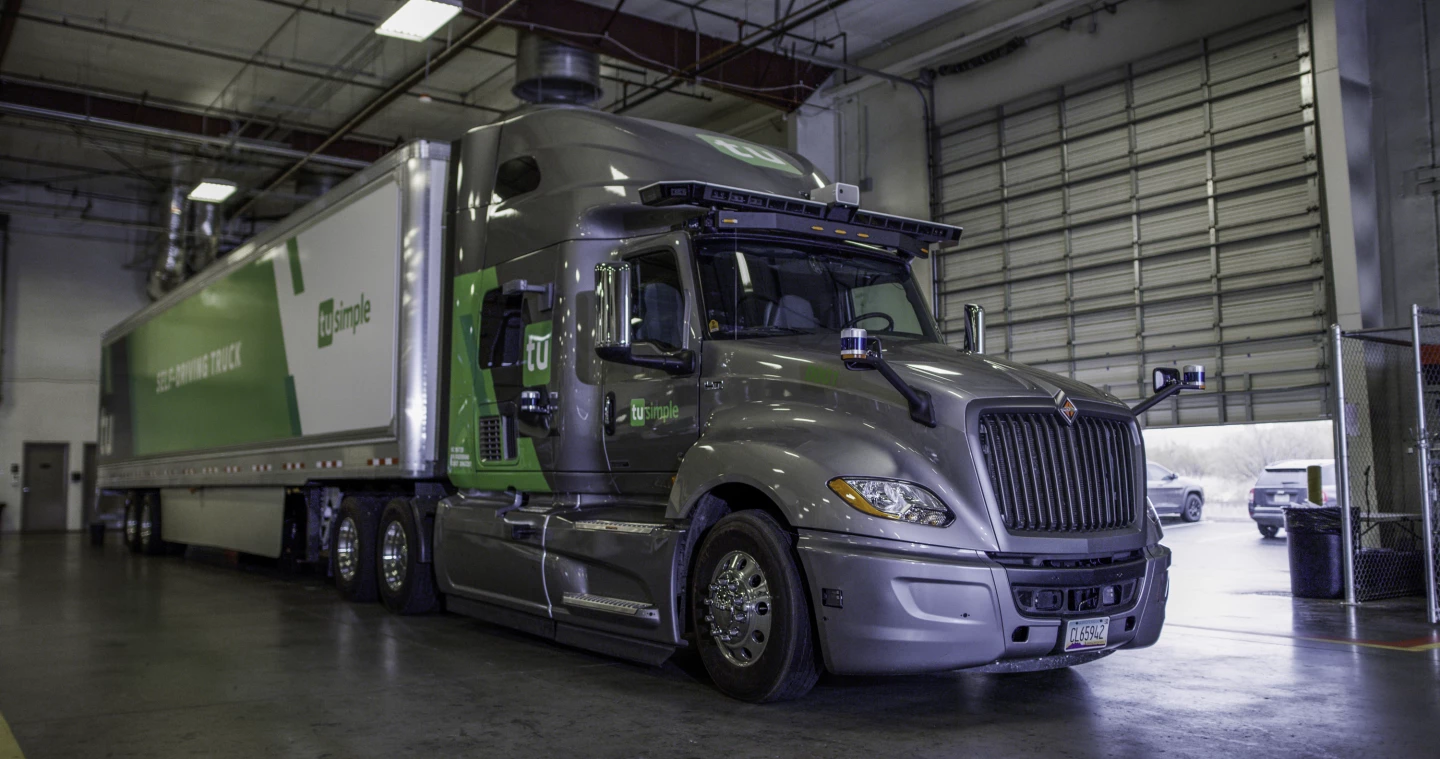With ambitions to establish a network of autonomous trucking routes across the US, transport startup TuSimple is taking some steady and significant steps forward as it proves its technology through trials and expands into Europe. The latest test run for its self-driving trucks involved hauling a load of fresh produce over hundreds of miles across the US, where it demonstrated that it can complete such tasks in a fast and highly efficient fashion.
Previously, we've seen TuSimple's Level 4 autonomous trucks use its variety of cameras and sensors to move goods as part of trials for the US Postal Service and shipping giant UPS. This time around, the startup has partnered with fresh produce provider The Giumarra Companies and Associated Wholesale Grocers to explore autonomous trucking's potential in the fresh food industry.
The trial started in Nogales, Arizona, where TuSimple's truck was loaded up with fresh watermelons from Giumarra's facility. The load was then carried across four states to Associated Wholesale Grocers's distribution center in Oklahoma City, where it was inspected and then distributed to stores around the state.

TuSimple's autonomous systems handled a 900-mile (1,450-km) leg of this journey, between Tucson, Arizona and Dallas, Texas, with human drivers managing the first and last sections at either end. It is required by law to have a human safety driver onboard for such operations in the US, but because the truck could operate nearly nonstop, it was able to complete this "middle-mile" journey in 14 hours and 6 minutes, compared to the 24 hours and 6 minutes it usually takes a human driver, which is 42 percent faster.
"We believe the food industry is one of many that will greatly benefit from the use of TuSimple's autonomous trucking technology," said Jim Mullen, Chief Administrative Officer at TuSimple. "Given the fact that autonomous trucks can operate nearly continuously without taking a break means fresh produce can be moved from origin to destination faster, resulting in fresher food and less waste."
Source: TuSimple via PRNewswire





